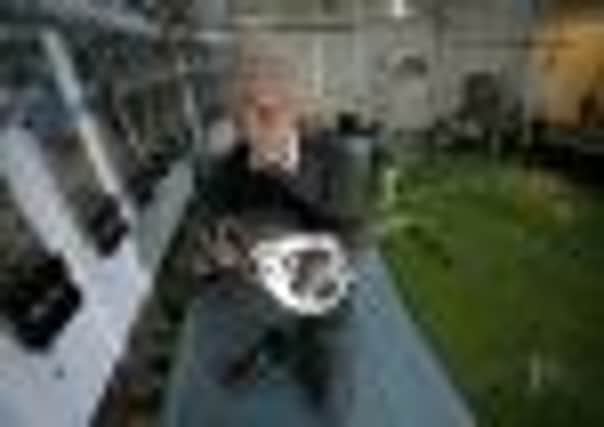City professor says technology will stop super storms


Stephen Salter says his invention will be able to stop deadly hurricanes, cyclones and super storms like Sandy – which wreaked havoc along the US eastern seaboard.
And the emeritus professor’s work has already achieved the backing of one of the world’s richest men in Bill Gates, who has been quick to recognise its climate-busting potential.
Advertisement
Hide AdAdvertisement
Hide AdHis technology – labelled the Salter Sink – will stop storms from forming by cooling the surface of oceans.
For it to work, thousands of car tyres will have to be lashed together to support tubes extending deep into the fathoms below.
Wave action on the surface then forces warm surface water down into the deeper ocean. Non-return valves allow the waters being mixed, cooling the surface temperature of the sea to under 26.5C, the critical temperature at which hurricanes form.
The pumps would be placed in “hurricane alley”, the region of the Atlantic around the equator between the Ivory Coast and the Caribbean where the worst storms form.
Advertisement
Hide AdAdvertisement
Hide AdProfessor Salter, who is world renowned as a pioneer of wave power research, has now patented the idea with Microsoft billionaires Bill Gates and Nathan Myhrvold and their company Intellectual Ventures.
The engineering design boffin said: “We are not looking to stop hurricanes completely as they do serve a purpose meteorologically. What we want to do is knock them down a peg or two so they don’t build to such an extent where they can cause such destruction.”
The expert revealed tests are currently being carried out on scale models.
“We have built a tank model here in Edinburgh and initial tests have been successful,” he said. “But there is still a lot of research and testing to complete.
Advertisement
Hide AdAdvertisement
Hide Ad“The structures cannot be moored, they have to be left to drift so we are now looking into ways of possibly steering them. They would emit radar signals so that ships wouldn’t collide with them.
“Another benefit of the sink is that once the warm water is mixed with the deeper cold water, a window of warmer water is created increasing habitats and breeding grounds for fish – this could have real benefits for fish production.”
The idea was presented to the US government post-Hurricane Katrina in 2007. Following this it was picked up and developed by Myhrvold and Gates’ Seattle-based tech company, Intellectual Ventures.
A statement on the company’s website states: “It may take thousands of these to protect America’s Gulf region, but we estimate the cost would be much lower than the damage caused by one of these storms.”
It has been estimated that Hurricane Sandy has caused $30 billion of damage, taking the costs of hurricanes in the US and Caribbean since 2002 to more than $200bn.